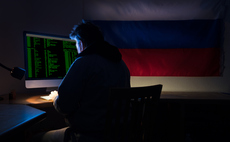Nigel Inkster argues that there is nothing new in what the spies are doing and says the likes of Google are far worse
Interviewed on the BBC Radio 4 Today programme this morning, ahead of an ISC announcement expected later today, Jimmy Wales of the Wikimedia foundation, which yesterday launched legal action again...
To continue reading this article...
Join Computing
- Unlimited access to real-time news, analysis and opinion from the technology industry
- Receive important and breaking news in our daily newsletter
- Be the first to hear about our events and awards programmes
- Join live member only interviews with IT leaders at the ‘IT Lounge’; your chance to ask your burning tech questions and have them answered
- Access to the Computing Delta hub providing market intelligence and research
- Receive our members-only newsletter with exclusive opinion pieces from senior IT Leaders





















